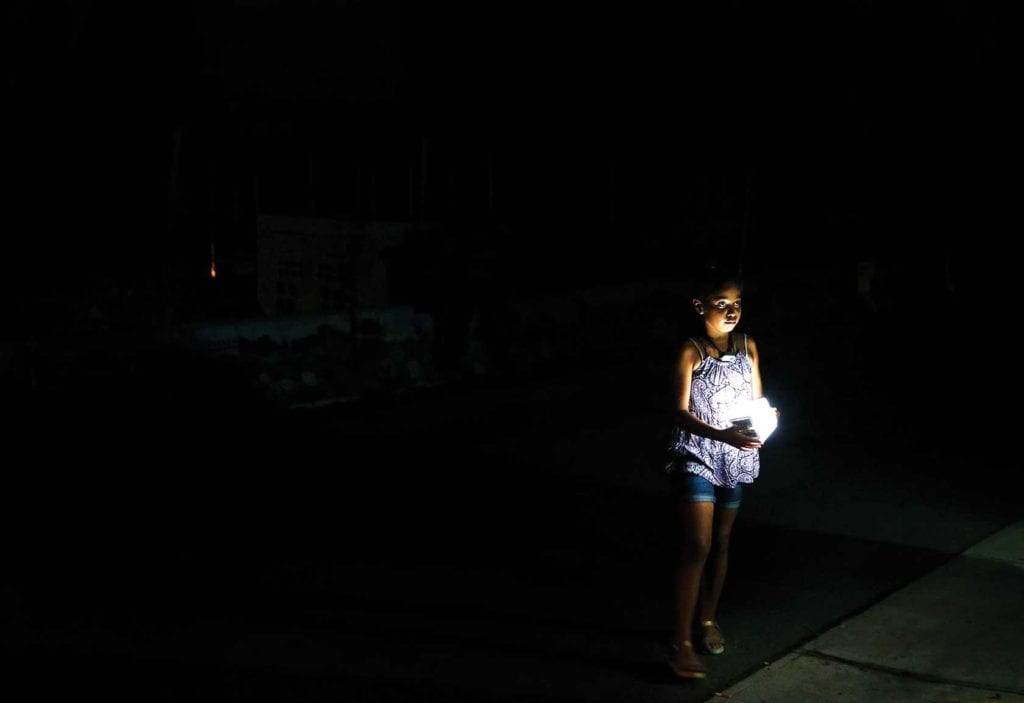Estelas de María
Photo exhibit illustrates ongoing Puerto Rico devastation

Currently on view at IBA’s La Galeria in the South End, “Estelas de María: Photo Exhibition” showcases documentation of Puerto Rico by WBUR reporter Simón Rios, photographer Jesse Costa and Boston Globe photographer Jessica Rinaldi, who visited shortly after hurricanes Irma and Maria devastated the island. The tragic and beautiful images are a stark reminder of how much work remains.
Exhaustion is one of the overarching themes of the exhibition. A young child sits in a dead sleep in his father’s arms; women wash clothes in the river with heavy arms; crowds in the airport collapse from physical and emotional exertion. Everyone, regardless of age or condition, works together to repair the island. With limited help from the United States government, the burden falls on the residents.

In a photo in the “Estelas de María” exhibit, a child watches workers repairing a home in Puerto Rico. photo: courtesy iba
“It’s not hardly over. Some places still don’t have water or light. If there was already a diaspora, it’s gotten worse,” says Julia Csekö, IBA’s arts program coordinator.
The photographers capture two different phases of the tragedy. Rinaldi’s works illustrate the extent of the tragedy. “Her photos are darker—she goes where the stench of death is,” says Csekö. She depicts a young girl, alone in the blacked-out world of her home, holding a single shining light source. She shows an elderly man struggling through the physical labor of repairing his home. The images are compositionally stunning, but emotionally excruciating.
Costa depicts the slow community process of rebuilding. He captures two men sweeping sand off the street in front of a mural of the Puerto Rican flag. Another image shows two men walking across an obliterated dock, assessing the damage. Many of Costa’s photographs also showcase the bright tropical colors Puerto
Rico is known for. This work offers sunlight. Costa doesn’t sugarcoat the devastation, but he offers hope.
In an adjacent room, a film about the hurricane damage plays on loop. Rios’ narration accompanies images and interviews of locals. In particular, the film focuses on Boston’s connection to the tragedy. Many Puerto Ricans have moved up to Western Massachusetts to escape the devastation, while others in the state have not heard from family members on the island. Several Boston-based nonprofits went down to contribute what they could to the relief efforts.
On Thursday, June 28, from 6:30-9:30 p.m., IBA will host a free panel discussion featuring professionals, including Rios, discussing the exhibit and the ongoing efforts to rebuild Puerto Rico.
Csekö points out that the problem is not just with rebuilding from this hurricane, but also implementing infrastructure for future storms. In some of the images it’s clear that the broken homes were already teetering on the edge of destruction. She says, “There will be more hurricanes. It’s important to keep the conversation going.”







